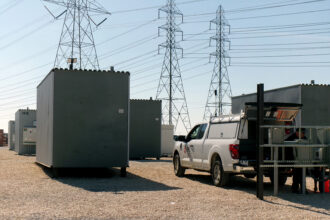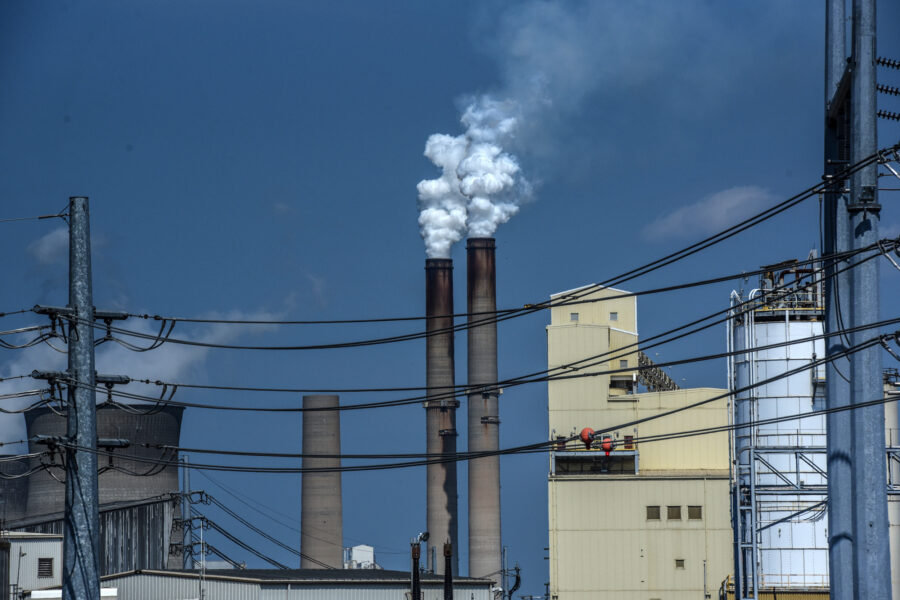Remember that joke about the traveling salesman and the farmer?
No, not that joke! The other one. Farmer invites the salesman to dinner. There’s a pig seated at the table. Salesman says, “Hey, why’s that pig sitting there?” Farmer replies, “This ain’t no ordinary pig. He saved our lives by pulling us out of a barn fire just last week.”
Salesman thinks about it, says, “Well, why’s the pig got a wooden leg?”
“Well,” says the farmer, “A pig that good you don’t eat all at once!”
If you pardon the analogy, energy efficiency funds are, like our porcine friends, smarter than they look. And equally as valuable. And equally endangered by states that cut from these funds thinking they won’t pay a price for it later.
California, the perennial best in show, has invested heavily in energy efficiency for years, creating over $3 in economic return for every $1 invested. Next Ten, one of the nation’s leading think tanks on green collar job creation, reports that over the past three decades over 1.5 million full time jobs have been created in the clean tech industry in the state. Total payroll for this pioneering green collar industry is now $45 billion, and the sustained investment in efficiency has saved Californians over $56 billion in energy costs. All this while the state has achieved a remarkable goal—no net increase in per capita energy use over the last 30 years.
And yet, despite the logic that suggests it would be a good idea to increase investment in funds that deliver these impressive returns, some states are doing just the opposite.
Connecticut, the third best state in the nation on energy efficiency, raided both its energy efficiency and renewable energy funds in 2003. And now, beset by unprecedented budget deficits, state officials are at it again, having made two attempts already this year to raid the ratepayer based public benefit funds.
There’s a reason the recently enacted stimulus package provides for such a large investment in clean tech. Studies commissioned by the Center for American Progress demonstrate that the same level of economic return and job creation that has taken place in California is not only possible, but is already occurring in other states, including Connecticut. Clean tech investments are a proven mechanism by which to create and retain jobs, and grow an economy.
Beyond their economic benefits, there’s another reason not to raid these funds.
As an appropriations bill, the federal stimulus legislation is built on previously authorized laws and regulations calling for federal dollars to supplement rather than supplant state funds. If states rip off state energy funds because they anticipate receiving federal funds to make up for it, it doesn’t take an Einstein to figure out that there will be no net gain in spending, no net gain in investment, and no net gain in the kind of job growth that clean tech provides.
It’s also possible that robbing Peter will rob Paul too—especially if federal dollars are withheld when states take from ratepayer funds to pay for their general operating expenses.
So, rather than looking at clean tech investments as a valuable program worth cutting a little bit at a time, state policymakers might be better served by remembering what John Podesta, CEO of the Center for American Progress (and co-chair of the Obama transition team) has said:
“Clean energy is at the foundation of any sound strategy for the growth of the economy.”
These funds are, then, quite special. It makes no sense to hack away at them pretending that doing so is without consequence.
Not only does it make poor economic sense, it makes poor environmental sense, and it only adds to the environmental health problems that exacerbate another concern—the rising cost of health care.
It makes poor legal sense on two counts. First, these are ratepayer funds, raised to provide public benefit with a dedicated revenue stream. They are not dollars for the taking, even in extremis, by state officials. Second, cutting these funds threatens the receipt of federal funds. Would the Department of Energy secretary authorize federal funds to a state that has hacked away at its own clean tech funds, especially those that are ratepayer based?
Tough choices are difficult to make, and lawmakers deserve some empathy as they struggle to do so. But let’s understand that we will recover from the current recession, that there will be an economic tomorrow. And when that tomorrow comes, let’s not shade it with the same kind of volatile, costly and inefficient carbon economy that got us here in the first place.
States should protect these funds, monitor them carefully, and use federal dollars to double down on these proven investments. It’s smart, it’s effective, and it’s a great way to save our bacon.
About This Story
Perhaps you noticed: This story, like all the news we publish, is free to read. That’s because Inside Climate News is a 501c3 nonprofit organization. We do not charge a subscription fee, lock our news behind a paywall, or clutter our website with ads. We make our news on climate and the environment freely available to you and anyone who wants it.
That’s not all. We also share our news for free with scores of other media organizations around the country. Many of them can’t afford to do environmental journalism of their own. We’ve built bureaus from coast to coast to report local stories, collaborate with local newsrooms and co-publish articles so that this vital work is shared as widely as possible.
Two of us launched ICN in 2007. Six years later we earned a Pulitzer Prize for National Reporting, and now we run the oldest and largest dedicated climate newsroom in the nation. We tell the story in all its complexity. We hold polluters accountable. We expose environmental injustice. We debunk misinformation. We scrutinize solutions and inspire action.
Donations from readers like you fund every aspect of what we do. If you don’t already, will you support our ongoing work, our reporting on the biggest crisis facing our planet, and help us reach even more readers in more places?
Please take a moment to make a tax-deductible donation. Every one of them makes a difference.
Thank you,












